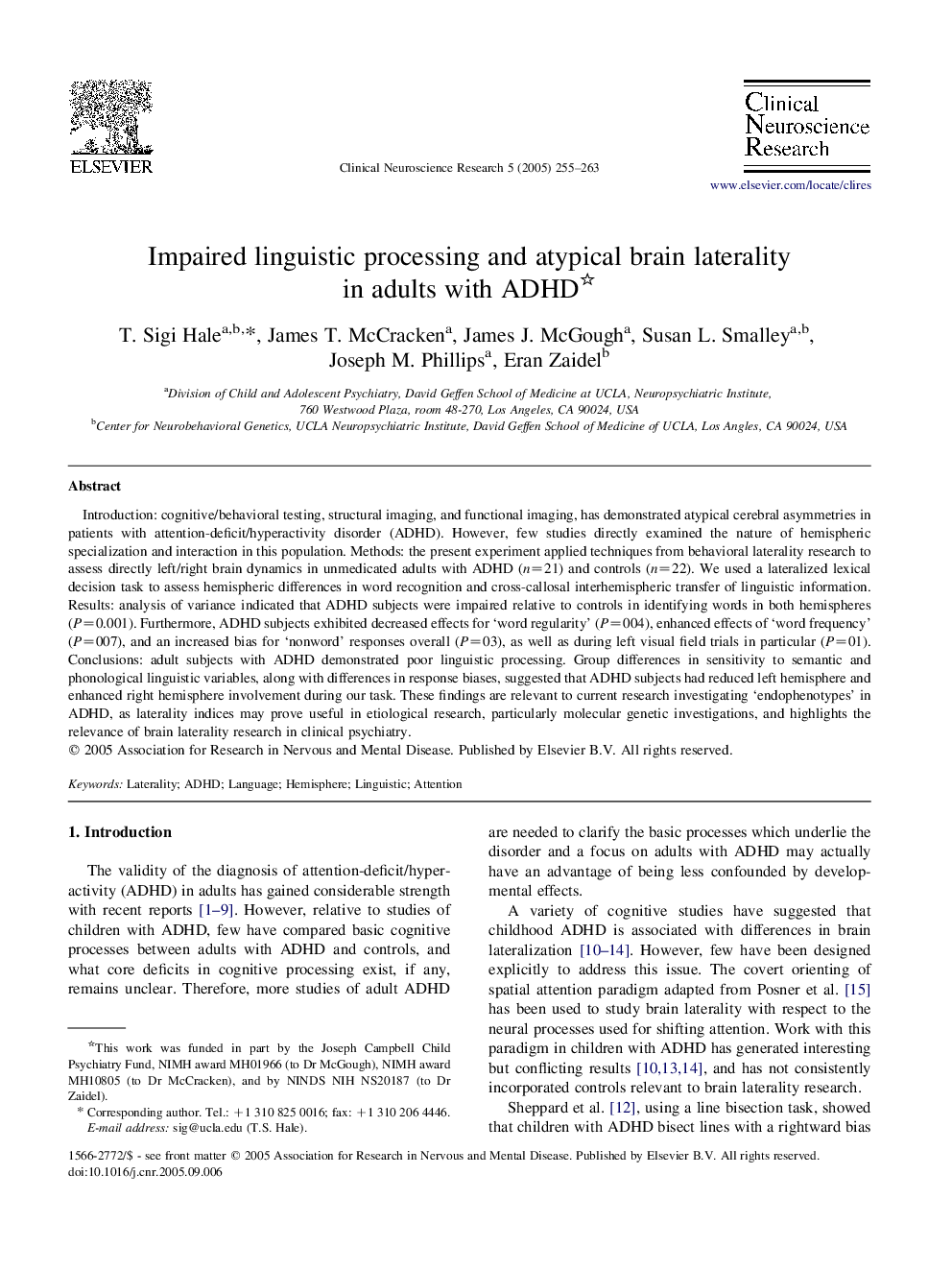| Article ID | Journal | Published Year | Pages | File Type |
|---|---|---|---|---|
| 9189872 | Clinical Neuroscience Research | 2005 | 9 Pages |
Abstract
Introduction: cognitive/behavioral testing, structural imaging, and functional imaging, has demonstrated atypical cerebral asymmetries in patients with attention-deficit/hyperactivity disorder (ADHD). However, few studies directly examined the nature of hemispheric specialization and interaction in this population. Methods: the present experiment applied techniques from behavioral laterality research to assess directly left/right brain dynamics in unmedicated adults with ADHD (n=21) and controls (n=22). We used a lateralized lexical decision task to assess hemispheric differences in word recognition and cross-callosal interhemispheric transfer of linguistic information. Results: analysis of variance indicated that ADHD subjects were impaired relative to controls in identifying words in both hemispheres (P=0.001). Furthermore, ADHD subjects exhibited decreased effects for 'word regularity' (P=004), enhanced effects of 'word frequency' (P=007), and an increased bias for 'nonword' responses overall (P=03), as well as during left visual field trials in particular (P=01). Conclusions: adult subjects with ADHD demonstrated poor linguistic processing. Group differences in sensitivity to semantic and phonological linguistic variables, along with differences in response biases, suggested that ADHD subjects had reduced left hemisphere and enhanced right hemisphere involvement during our task. These findings are relevant to current research investigating 'endophenotypes' in ADHD, as laterality indices may prove useful in etiological research, particularly molecular genetic investigations, and highlights the relevance of brain laterality research in clinical psychiatry.
Related Topics
Health Sciences
Medicine and Dentistry
Clinical Neurology
Authors
T. Sigi Hale, James T. McCracken, James J. McGough, Susan L. Smalley, Joseph M. Phillips, Eran Zaidel,
